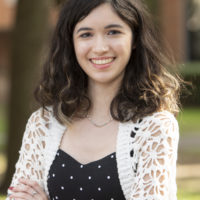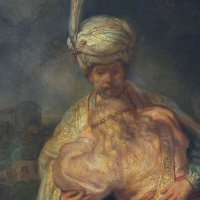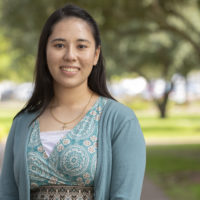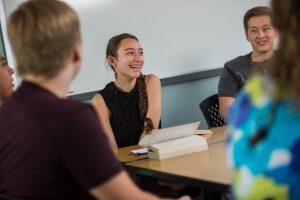Academy Newsletter Fall 2021
Greetings, friends of the Academy at Houston Christian University!
In an age of disruption, disconnection and loneliness, cultivating true friendships seems increasingly important to human flourishing. But what is a “true friendship”? How is friendship expressed? And where can we look for models? In his Nicomachean Ethics, Aristotle writes, “a friend, being another self, furnishes what a man cannot provide by his own effort” (Aristotle, Nicomachean Ethics, IX.8). Treating friendship as a virtue necessary for life, Aristotle considers different types of friendships and their effects before ultimately concluding that life is better lived together with friends. Academy students in Great Books I read this well-known work at the beginning of the spring semester, and it provides foundational language and ideas surrounding ethics that the students will return to again and again throughout their time in the Academy. Although the work covers a range of topics for how to live a good, ethical life, the one that captures students’ attention year after year is precisely Aristotle’s treatment of friendship.
Perhaps we shouldn’t be surprised that high school students are captivated by reading about, thinking about, and talking about friends. But Aristotle’s treatment of this virtue should not be dismissed as merely subject matter for teens. No, indeed. This is weighty stuff. We would all be well-served to return to Aristotle’s meditations on virtue in general and friendship in particular, perhaps now more than ever.
On November 6, 2021, I invite you to do just that. On that day, from 10:30 am until 1:00 pm, the Academy at HCU will host a mini-conference on the theme of friendship. Dr. David Davis, Associate Dean in the College of Arts and Humanities and Associate Professor of History (and erstwhile Academy instructor!), will give a short lecture entitled, “The ‘Other Self’ in the Western Tradition” (hint: it’s about friendship in Aristotle). Then Dr. Lou Markos, Scholar-in-Residence and Professor of English, will give a short lecture entitled, “Lewis and Tolkien: Apologists for Friendship.” You can visit with these professors and others from the Academy and the Honors College, plus see all your Academy friends! This event is free and open to the public, but seating is limited; reserve your seats today by visiting HBUAcademy.com.
This mini-conference on friendship will serve as a kick-off event for our annual junior high essay and art contest, open to any Houston-area student in grades 6-9. This year’s contest theme, like the theme of the conference, will be Friendship. Submissions will be due at the end of February; more details are coming to the Academy website soon.
The newsletter below features details on the mini-conference on friendship and other upcoming events, information about registering for one-semester spring classes (reserved for high school juniors and seniors and subject to the dean’s approval), and conversations with two of our dear Academy friends: student Skylar Reyna and professor Brittany Guzman.
Sincerely,
Julianna Leachman
Director, The Academy
Houston Christian University
Featured in this issue of the Academy Newsletter:
Student Spotlight: Skylar Reyna
How long have you been part of the Academy at HCU, and how did you first discover the Academy?
I joined the Academy in 2018 and am currently in my fourth year. My family and I heard about the academy from a friend who was going through the program at the time.
What accomplishment are you most proud of from your time in the Academy?
It is definitely the Order of Dante Alighieri (excellence in writing) award I received in 2020. It was completely unexpected. Before I entered the Academy, I had never written a formal essay. I knew I liked creative writing, so I just assumed it would be easy. Fast forward to the eve of my first CQ deadline, I submitted my paper with pride and confidence that I would receive a good grade. However, when my professor handed back my paper, it had a big red “C” on it. I was completely mortified. Thankfully, my professor let me rewrite that CQ for a better grade. After that experience, I took every writing criticism to heart and my paper grades began to rise. I never considered myself a stellar writer. However, in the second semester of Great Books II, I was nominated by my professor for an academic award and won. I was ecstatic to receive such an award. This is my proudest accomplishment while at the Academy because I went from being a subpar essay writer to someone who was singled out for their excellence in writing. In addition, I am very honored to have won the Order of St. Augustine award last year. All of my persistence has truly paid off, and I couldn’t have done it without the guidance of my excellent professors.
What is your favorite memory so far of your time in the Academy?
When my Great Books II class was discussing A Midsummer’s Night Dream, my professor split us up into groups and had us come up with our own alternate ending for the play. We were required to either pick a tragic or comedic ending. My group was the only one that chose a comedy. We came up with new characters, family trees, and twisting plotlines. It was really fun to write, and our story made everyone laugh. Our comedy was a complete success!
What have you learned about yourself as a student and a person through your experiences in the Academy?
I have found that I am a very determined person when it comes to anything regarding my HCU work. I try to do my absolute best in class discussions, papers, or presentations. I like to be “over prepared” in a sense, but I found this helps especially with oral exams. Additionally, I have found that I enjoy helping my peers, whether it is sharing notes, offering advice, or explaining a difficult book.
What is a challenge you’ve encountered in the Academy that you weren’t expecting? How did you meet the challenge?
The hardest thing for me is time management, especially now that I take other regular college classes through HCU. It can be hard to juggle two college classes, as well as doing homeschool work and maintaining my social life. I try to plan ahead as much as I can, but sometimes things happen and I can’t get my reading or homework in for the day. Though, I have learned how to motivate myself so that I stay on track as much as possible. A few things that help me are tiny breaks, naps, and dessert, because sometimes your brain is just done and you need a rest (or a sweet treat).
What is your favorite book that you’ve read during your time in the Academy and why?
It’s so hard to pick just one! If I have to choose, I guess I’ll go with Le Morte D’arthurby Sir Thomas Malory. I really enjoyed reading about King Arthur, the Knights of the Round Table, and all of their adventures. I also wrote my favorite paper off of this book. Although I claim this is my favorite, there is a special place in my heart for the Greek Epics, Beowulf, and Frankenstein as well.
What advice can you offer for brand-new Academy students? What encouragement can you offer for prospective Academy students?
For brand-new students, my best advice would be to stay ahead as much as possible to make it easier on yourself. Create a reading schedule to make sure you’re on track. It’s nice to have a book finished at least a week before it’s due. For presentations, I like to start at least a month early so I have time to find what I want to do and make sure I have all the information I need memorized. Also, make notes in your book of important ideas or passages; this helps a lot in preparation for oral exams.
For prospective students, I’m not going to lie, the Great Books program is tough but so rewarding. The books that you will read laid the foundation for the world we live in today! Moreover, I am so glad I went through the program. I don’t feel stressed about how I’m going to do in college because I have already been trained to succeed in a college environment. Thus, if you decide to take part in the Academy, my best advice would be to look at the length of the first two books as soon as the booklist comes out. Then, plan to have those books finished before (or nearly before) the class starts. This gives you the advantage of being prepared, and it also gives you some leeway in the reading schedule because you are so ahead. If you are having any trouble at all, make sure to talk to your professors! They are there to help and guide you.
How will you make the most of your final year in the Academy?
I plan to just enjoy the journey. I know the program pretty well by now, so I’m more comfortable with the load and less stressed about requirements for the class. I look forward to attending Academy events, as well as hanging out with my friends that I have made through the program.
How do you think the Academy has prepared you for life after high school?
I think the most important thing the Academy has taught me is how to think critically from the books we read. To this day, I relate life events, whether personal or in the media, to things I have learned from all the books I have read as well as discussions I have had in class. I believe the wisdom imparted to me from this rich literature has made me a well-rounded person. On a less serious note, a lot of the passionate debates I have had in class still stick with me and others, and we continue to discuss these ideas years after. Recently, at the Greek Festival I saw a shirt claiming that Achilles is a Greek “hero,” to which I emphatically ranted to my friends that he is not. Also, the debate of whether Beowulf is a good person or not is still alive and well (if you’re curious, I believe he is a good person. Take that, Beowulf haters!) Thus, I believe that the most important thing that I have learned from the Academy is how to think, how to create solid arguments, and how to accept differing viewpoints from other classmates. I hope that the lessons I have learned will stay with me for life.
Faculty Feature: Brittany Guzman
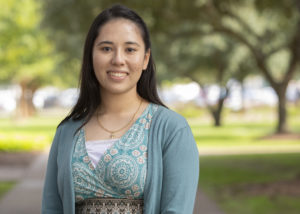 You first came to HCU as a freshman in college and member of the Honors College. What attracted you to HCU and the Honors College? What was your experience in the Honors College like?
You first came to HCU as a freshman in college and member of the Honors College. What attracted you to HCU and the Honors College? What was your experience in the Honors College like?
I was initially interested in HCU because of its small class sizes, and I heard about the Honors College mostly by chance. Now, I would consider that chance a grace. The Honors College introduced me to the liberal arts, and it showed me how education is truly interdisciplinary. The Socratic discussions on primary texts allowed me to delve into the works themselves and understand them on my own and with classmates, rather than just memorizing information.
What was your college major? How and why did you choose this major?
I majored in Government because I initially intended to go to law school. Even though I have been called to a different career path, I still love reading and discussing political philosophy, and I’m grateful for the historical and philosophical lens that HCU uses for its government classes. The skill of analyzing motives and outcomes and offering persuasive arguments is one that applies outside of the classroom, and it helps me better navigate new texts and understand current issues.
After finishing your undergraduate degree, you decided to enroll in the Masters of Liberal Arts Program at HCU. You’ve been studying Great Books for many years now! Why do you find the study of Great Books so important? How do you convince students, especially those who may want to pursue careers outside of the humanities, of this importance?
The Great Books are the story of human experience, how we understand and interact with the world. Because of this, the Great Books always have something more to show us, even if we’ve read the same book four times. We learn how to better understand God, ourselves, and others, and by doing this, we become better people. By studying these texts, students learn how to live well—how to deal with troubling times, work through difficult questions, see others’ experiences, and how to know themselves.
We often say that the Academy is modeled on the Honors College. What are some similarities between the two programs, and what are some distinctions? What is something unique that the Academy offers?
Both programs have a dedication to showing students how to work through primary texts and give students an active role in their own education through discussion-based classes. The Honors College immediately immerses students in a rigorous program that gives wide breadth of knowledge and reading. As a college student, I enjoyed the challenge and the constant new material. Especially since this was my first time reading most of the Great Books, I was excited for the next book and discussion.
The Academy is better tailored for high school students. We spend more time preparing students for the assignments and teaching them study skills—like note-taking, outlining, and reading for discussion. Since each course takes place over two semesters instead of one, students enter more deeply into each book and really appreciate each work before moving onto the next one.
What is your favorite text to teach in the Academy and why?
My favorite text is Steinbeck’s East of Eden. I first read this in the Honors College, and I enjoy returning to it each year. Steinbeck carefully weaves a story around the question of whether we are destined to commit good or evil. Each year, I get to watch students confront this question and Steinbeck’s characters as they figure out this question for themselves. It’s my favorite because I get to share this work of literature and experience with them.
What encouragement can you offer to new and returning Academy students?
Don’t be scared of the book list. Each book is a new opportunity to find out what you don’t know and then explore it. There is no better place to face intellectual challenges than with the Academy because you know that you’ll have your classmates as your team in discussion and professors to guide you through the material. Don’t worry about understanding every detail of each book but enjoy the experience of learning something new. By doing this, you’ll remember the essential parts of each book and class.
Upcoming Events
I invite you to attend these upcoming university events, which will be of interest to Academy students.
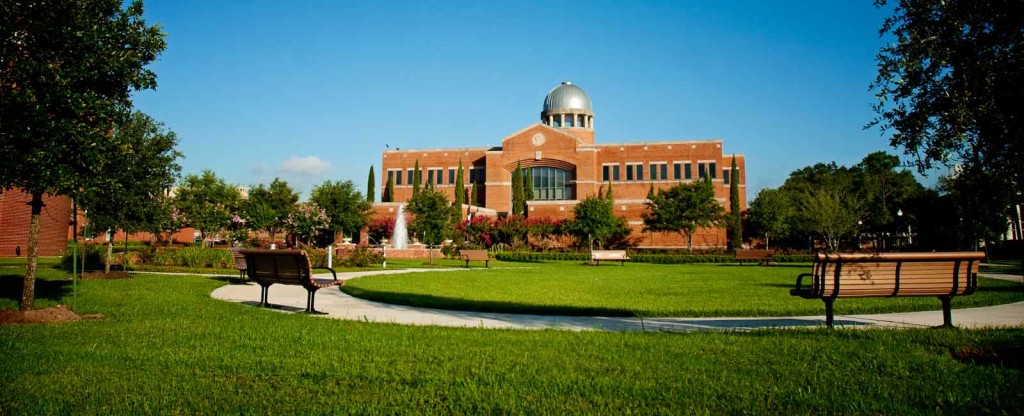
On November 2, 2021 at 7 pm in Belin Chapel, Dr. Tony Joseph will present a lecture on Benjamin Church as part of an ongoing Law and Liberty Lecture Series called Traitors and Turncoats.
On November 3, 2021 at 4 pm in Hinton Center (Dillon II), Dr. Doni Wilson will give a public lecture on “How To Be A Reader” Whether you are an expert reader, someone who struggles with reading, or a homeschool parent hoping to pick up some strategies for promoting literacy and a love of reading in your children, you won’t want to miss this event.
On November 6, 2021 from 10:30 am-1:00 pm in Hinton Center (Dillon II), The Academy will host a mini-conference on the theme of friendship, featuring short lectures by Dr. David Davis and Dr. Lou Markos. Reserve your seats here.
Spring 2022 one-semester course offerings
High school juniors and seniors are eligible to enroll in traditional one-semester undergraduate courses that do not have pre-requisites (subject to dean’s approval). These one-semester courses are offered at the same low Academy tuition rate! If you are interested in taking advantage of this opportunity, please check the spring 2022 class schedule, then email TheAcademy@hc.edu to register.
Some classes do fill up quickly, so please let us know as soon as possible which classes you’re interested in taking!
Submit Your News!
Academy students, alums, and faculty: we want to hear from you! Let us know what you’re up to outside the Academy classroom. Email TheAcademy@HC.edu with your news.
Make sure to like and follow our Facebook page for more frequent updates.
